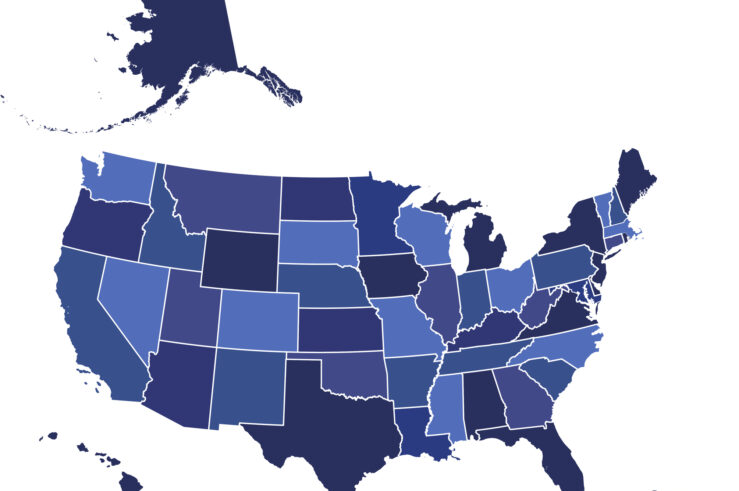Showing archive for: “FTC”
U.S. Senate Self-Preferencing Bill Offers Perfect Recipe for Regulatory Overreach
Even as delivery services work to ship all of those last-minute Christmas presents that consumers bought this season from digital platforms and other e-commerce sites, the U.S. House and Senate are contemplating Grinch-like legislation that looks to stop or limit how Big Tech companies can “self-preference” or “discriminate” on their platforms. A platform “self-preferences” when ... U.S. Senate Self-Preferencing Bill Offers Perfect Recipe for Regulatory Overreach
FTC Statement of Regulatory Priorities: Storm Clouds Are Looming
The Federal Trade Commission (FTC) appears committed—at least, for the moment—to a path of regulatory overreach. The commission’s Dec. 10 Statement of Regulatory Priorities (SRP) offers, in addition to a periodic review of existing rules and the status of proposed rules in the pipeline, a sneak preview of new “unfair methods of competition” (UMC) and ... FTC Statement of Regulatory Priorities: Storm Clouds Are Looming
FTC Challenge to Nvidia-Arm Vertical Merger: Potential Efficiency Justifications
The Federal Trade Commission (FTC) on Dec. 2 filed an administrative complaint to block the vertical merger between Nvidia Corp., a graphics chip supplier, and Arm Ltd., a computing-processor designer. The press release accompanying the complaint stresses the allegation that “the combined firm would have the means and incentive to stifle innovative next-generation technologies, including ... FTC Challenge to Nvidia-Arm Vertical Merger: Potential Efficiency Justifications
Oldie-but-Baddie: The Revival of an Antitrust ‘Efficiencies Offense’?
Recent antitrust forays on both sides of the Atlantic have unfortunate echoes of the oldie-but-baddie “efficiencies offense” that once plagued American and European merger analysis (and, more broadly, reflected a “big is bad” theory of antitrust). After a very short overview of the history of merger efficiencies analysis under American and European competition law, we ... Oldie-but-Baddie: The Revival of an Antitrust ‘Efficiencies Offense’?
The FTC’s Privacy Report Fails to Justify Asymmetric Regulation of ISPs
Others already have noted that the Federal Trade Commission’s (FTC) recently released 6(b) report on the privacy practices of Internet service providers (ISPs) fails to comprehend that widespread adoption of privacy-enabling technology—in particular, Hypertext Transfer Protocol Secure (HTTPS) and DNS over HTTPS (DoH), but also the use of virtual private networks (VPNs)—largely precludes ISPs from ... The FTC’s Privacy Report Fails to Justify Asymmetric Regulation of ISPs
What is the Appropriate Role for State Antitrust Enforcement?
In the U.S. system of dual federal and state sovereigns, a normative analysis reveals principles that could guide state antitrust-enforcement priorities, to promote complementarity in federal and state antitrust policy, and thereby advance consumer welfare. Discussion Positive analysis reveals that state antitrust enforcement is a firmly entrenched feature of American antitrust policy. The U.S. Supreme ... What is the Appropriate Role for State Antitrust Enforcement?
Consumer Welfare-Based Antitrust Enforcement is the Superior Means to Deal with Large Digital-Platform Competition Issues
There has been a rapid proliferation of proposals in recent years to closely regulate competition among large digital platforms. The European Union’s Digital Markets Act (DMA, which will become effective in 2023) imposes a variety of data-use, interoperability, and non-self-preferencing obligations on digital “gatekeeper” firms. A host of other regulatory schemes are being considered in ... Consumer Welfare-Based Antitrust Enforcement is the Superior Means to Deal with Large Digital-Platform Competition Issues
FTC Moves Closer Toward Ex Ante Merger Regulation
The Federal Trade Commission (FTC) has taken another step away from case-specific evaluation of proposed mergers and toward an ex ante regulatory approach in its Oct. 25 “Statement of the Commission on Use of Prior Approval Provisions in Merger Orders.” Though not unexpected, this unfortunate initiative once again manifests the current FTC leadership’s disdain for ... FTC Moves Closer Toward Ex Ante Merger Regulation
‘New Madison Approach’ Should Be Retained to Promote American Innovation
The leading contribution to sound competition policy made by former Assistant U.S. Attorney General Makan Delrahim was his enunciation of the “New Madison Approach” to patent-antitrust enforcement—and, in particular, to the antitrust treatment of standard essential patent licensing (see, for example, here, here, and here). In short (citations omitted): The New Madison Approach (“NMA”) advanced ... ‘New Madison Approach’ Should Be Retained to Promote American Innovation
5 Thoughts on the Senate’s Proposed Platform Self-Preferencing Ban
A bipartisan group of senators unveiled legislation today that would dramatically curtail the ability of online platforms to “self-preference” their own services—for example, when Apple pre-installs its own Weather or Podcasts apps on the iPhone, giving it an advantage that independent apps don’t have. The measure accompanies a House bill that included similar provisions, with ... 5 Thoughts on the Senate’s Proposed Platform Self-Preferencing Ban
Broad-Based FTC Data-Privacy and Security Rulemaking Would Flunk a Cost-Benefit Test
A debate has broken out among the four sitting members of the Federal Trade Commission (FTC) in connection with the recently submitted FTC Report to Congress on Privacy and Security. Chair Lina Khan argues that the commission “must explore using its rulemaking tools to codify baseline protections,” while Commissioner Rebecca Kelly Slaughter has urged the ... Broad-Based FTC Data-Privacy and Security Rulemaking Would Flunk a Cost-Benefit Test
Khan’s ‘Vision and Priorities for the FTC’ Statement Lacks Humility and Strategic Insight
Federal Trade Commission (FTC) Chair Lina Khan’s Sept. 22 memorandum to FTC commissioners and staff—entitled “Vision and Priorities for the FTC” (VP Memo)—offers valuable insights into the chair’s strategy and policy agenda for the commission. Unfortunately, it lacks an appreciation for the limits of antitrust and consumer-protection law; it also would have benefited from greater ... Khan’s ‘Vision and Priorities for the FTC’ Statement Lacks Humility and Strategic Insight











